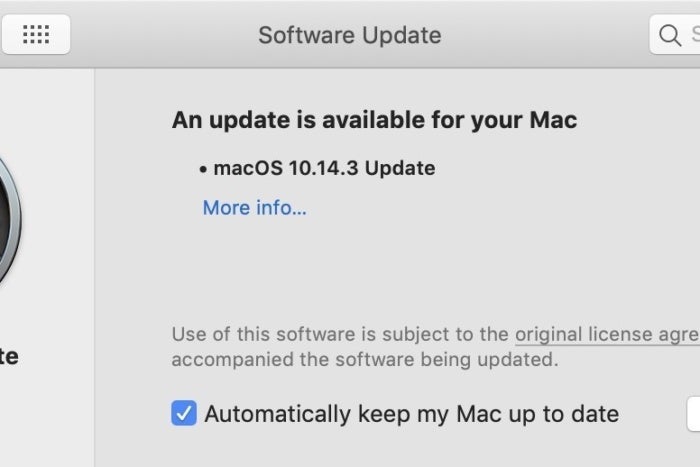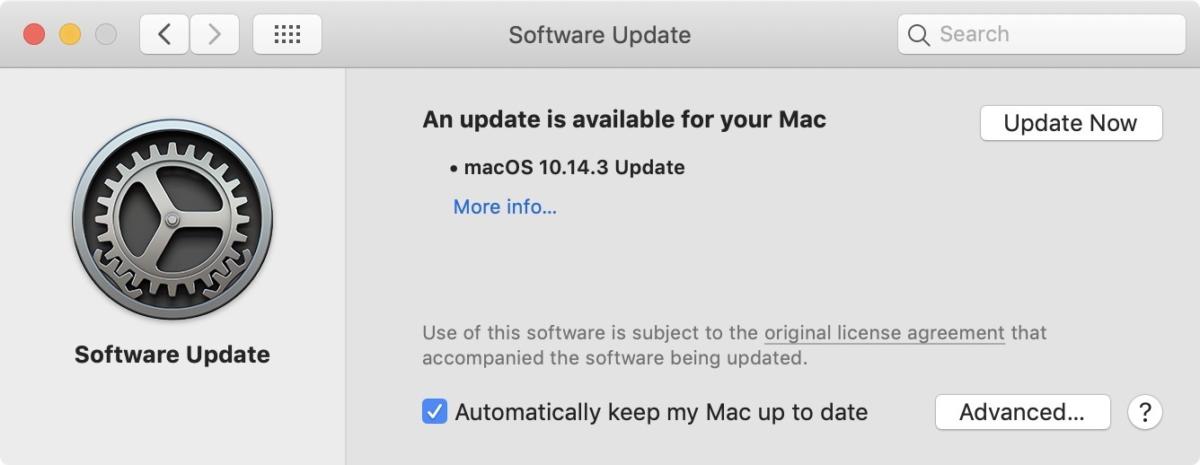Apple releases macOS 10.14.3 update

consent.ads.queue.push(function(){
try {
IDG.GPT.addDisplayedAd(“gpt-superstitial”, “true”);
$(‘#gpt-superstitial’).responsiveAd({screenSize:’971 1115′, scriptTags: []});
IDG.GPT.log(“Creating ad: gpt-superstitial [971 1115]”);
}
catch (exception) {
console.log(“Error with IDG.GPT: ” + exception);
}
});
This update includes security and enterprise-based fixes.

IDG
“);
});
try {
$(“div.lazyload_blox_ad”).lazyLoadAd({
threshold : 0, // You can set threshold on how close to the edge ad should come before it is loaded. Default is 0 (when it is visible).
forceLoad : false, // Ad is loaded even if not visible. Default is false.
onLoad : false, // Callback function on call ad loading
onComplete : false, // Callback function when load is loaded
timeout : 1500, // Timeout ad load
debug : false, // For debug use : draw colors border depends on load status
xray : false // For debug use : display a complete page view with ad placements
}) ;
}
catch (exception){
console.log(“error loading lazyload_ad ” + exception);
}
});
Apple on Tuesday release an update to macOS Mojave. Version 10.14.3 is now available, though Apple’s notes on the update don’t offer much detail. The notes state the following:
This update improves the security, stability, and compatibility of your Mac and includes the following enterprise content: When making a file-sharing connection that uses a valid Kerberos TGT to authenticate, users are no longer prompted to enter credentials.
The 10.14.3 update also includes several security updates.
Before installing the update, it’s a good idea to back up your Mac first. Once that’s done, go to System Preferences > Software Update to run the update. The installation will take several minutes and your Mac will need to restart.


